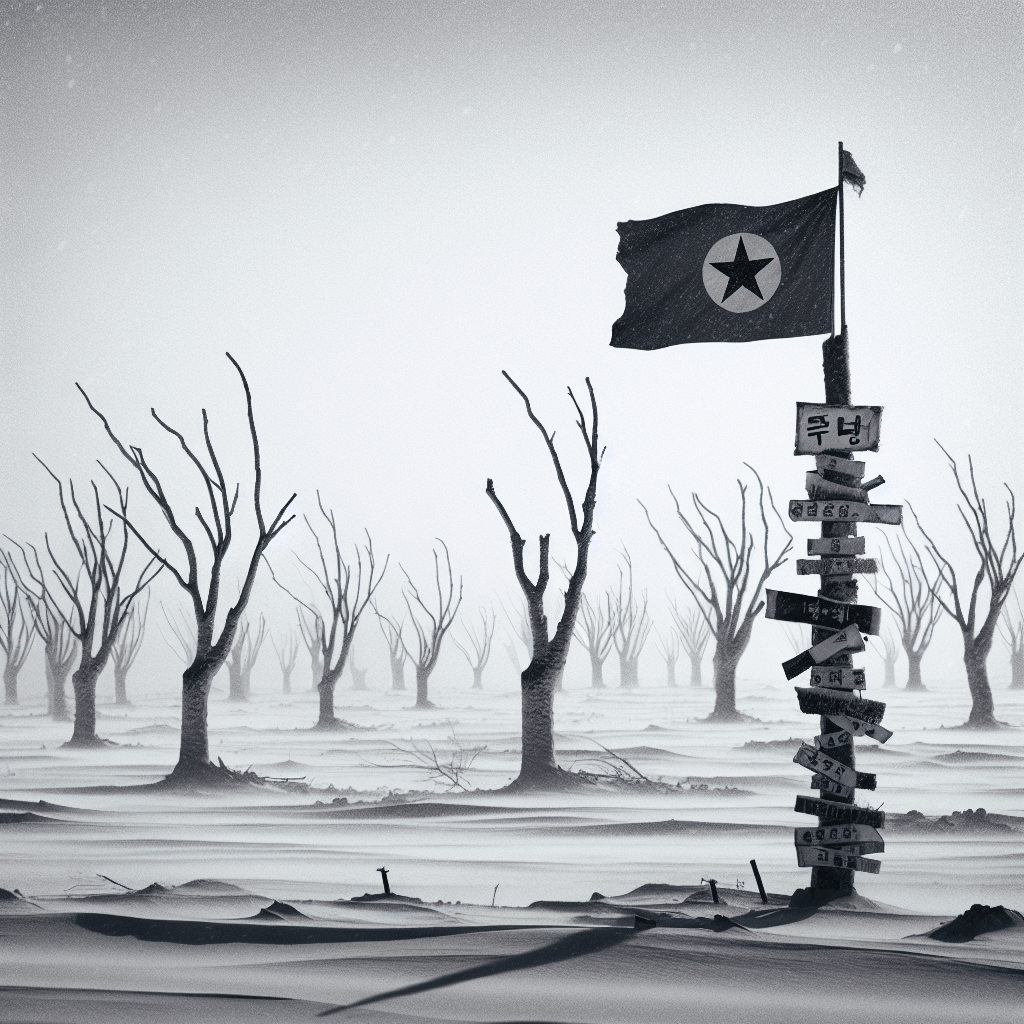Understanding North Korea: An Exploration of the Hermit Kingdom
North Korea, officially known as the Democratic People’s Republic of Korea (DPRK), is one of the most secretive and isolated countries in the world. With a history marked by military conflicts, economic hardships, and strict authoritarian rule, North Korea remains an enigmatic and often misunderstood nation on the global stage.
Historical Context and Formation of North Korea
The roots of modern North Korean society date back to the close of World War II when the Korean Peninsula, previously under Japanese control, was divided along the 38th parallel. This division was initially intended as a temporary measure until a unified government could be established. However, it became permanent when Kim Il-Sung’s Soviet-backed regime in the north and Syngman Rhee’s American-backed regime in the south both claimed to be the legitimate government of all Korea.
The ideological clash between the communist north and the capitalist south led to the outbreak of the Korean War in 1950, which lasted until an armistice — not a formal peace treaty — was signed in 1953. The war left the peninsula divided and led to the fortification of borders, creating one of the world’s most militarized zones.
Political Ideology and Governance
North Korea has been shaped profoundly by its political ideology, Juche, introduced by Kim Il-Sung. Juche is often interpreted as a form of extreme nationalism with core principles centered on self-reliance, isolationism, and military preparedness. The state exercises strict control over many aspects of its citizen’s lives — from political expression to personal attire and media consumption – with a pervasive cult of personality around its leaders.
The ruling Workers’ Party of Korea (WPK), led by the Kim dynasty since its inception, oversees a central command economy and directs all national resources towards maintaining regime stability and its military capabilities.
The Role of Nuclear Weapons in North Korean Policy
One cannot discuss North Korea without addressing its nuclear ambitions. In the early 2000s, it was confirmed that North Korea had developed nuclear weapons, which has significantly heightened tensions with the international community.
The development and testing of nuclear weapons have been portrayed by Pyongyang as necessary deterrents against invasion or attack, particularly by the United States and South Korea. Despite repeated sanctions and international pressure to denuclearize, North Korea maintains its stance on retaining its nuclear arsenal for national defense.
Human Rights Concerns and Defectors’ Testimonies
Numerous reports from defectors and international human rights organizations paint a grim picture of life inside North Korea, where freedom of speech, press, assembly, and religion are virtually nonexistent. The government operates prison camps where it is alleged that political prisoners are subjected to forced labor, torture, starvation, and execution.
Defectors’ testimonies provide rare glimpses into the daily life struggles facing ordinary North Koreans, including severe food shortages trim largely from economic mismanagement and international sanctions levied in response to its nuclear weapons program.
Economic Realities
Despite sanctions and such self-imposed isolation, North Korea maintains trade relationships with countries like China — its most significant ally and economic partner. While exact data on North Korea’s economy is scarce due to its closed-off nature, it is widely accepted that there exists a disparity between the nation’s lower classes and the more privileged Pyongyang elites.
The country has experienced periods of famine in recent decades, most notably in the mid-1990s. Advances in areas like technology are also reportedly lagging behind much of the world due to sanctions limiting imports of certain goods.
Engagement with the International Community
North Korea’s relationship with other nations fluctuates between aggressive standoffs – particularly over its missile tests – and surprising moments of diplomacy. Occasional bids for peace through summits or agreements often raise hopes for de-escalation; however, consistent progress has been elusive.
Notes
*Image description: A seemingly stark North Korean landscape showing bare trees against a wintery background; the monotony only broken by a flag-bearing post emblazoned with DPRK symbols—reflecting perhaps both the bleakness often associated with life in North Korea as well as its rigid national pride.*

